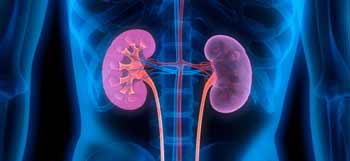![]() info@stemcellcure.in
info@stemcellcure.in![]() +91-9650988899
+91-9650988899![]() +91-9891404143
+91-9891404143
Diabetes (Types 1 & 2)
Treatment of Diabetes
Stem cell therapy for Diabetes
WHAT IS DIABETES?
Diabetes Mellitus is a group of metabolic diseases in which the body cannot regulate the amount of sugar (glucose) in the blood. People with diabetes either do not produce enough insulin (type 1 diabetes) or cannot use insulin properly (type 2 diabetes) or both (which occurs with several forms of diabetes).
There are two major types of diabetes. The causes and risk factors are different for each type:
Type 1 Diabetes: – The body stops producing insulin or produces too little insulin to regulate blood glucose level because of progressive failure of the pancreatic beta cells. It can occur at any age, but it is most often diagnosed in children, teens, or young adults. Daily injections of insulin are needed. The exact cause is unknown.
Type 2 Diabetes: – Although the pancreas still secretes insulin, the body of someone with “type 2 diabetes” is partially or completely unable to use this insulin. This is sometimes referred to as insulin resistance. It makes up most of diabetes cases. It most often occurs in adulthood, but teens and young adults are now being diagnosed with it because of high obesity rates.
COMPLICATIONS Of Diabetes:-
Both type 1 and type 2 diabetes ultimately lead to high blood sugar levels, a condition called “Hyperglycemia”. Over a long period of time, hyperglycemia damages the retina of the eye, the blood vessels of the kidneys, the nerves, and other blood vessels.
1. Damage to the retina from diabetes (diabetic retinopathy) is a leading cause of blindness.
2. Damage to the kidneys from diabetes (diabetic nephropathy) is a leading cause of kidney failure.
3. Damage to the nerves from diabetes (diabetic neuropathy) is a leading cause of foot wounds and ulcers, which frequently lead to foot and leg amputations.
4. Damage to the nerves in the autonomic nervous system can lead to paralysis of the stomach, chronic diarrhea, and an inability to control heart rate and blood pressure during postural changes.
5. Diabetes accelerates atherosclerosis, (the formation of fatty plaques inside the arteries), which can lead to blockages or a clot (thrombus). Such changes can then lead to heart attack, stroke, and decreased circulation in the arms and legs (peripheral vascular disease).
6. Diabetes predisposes people to elevated blood pressure, high levels of cholesterol and triglycerides. These conditions both independently and together with hyperglycemia, increase the risk of heart disease, kidney.
STEM CELL SERVICES FOR Diabetes (TYPE 1 & 2):-
Currently available treatment (medicines, diet, insulin injection and exercise) can control blood sugar but cannot cure diabetes. Over the past several years, doctors have attempted to cure diabetes via transplanting functional insulin producing beta-islet cells and pancreas from donor. However, the requirement for steroid immunosuppressant therapy to prevent rejection of the pancreatic cells, increases the metabolic demand on insulin-producing cells and eventually they may exhaust their capacity to produce insulin and also shown deleterious effect on pancreas cell and shown less successful result.
Stem Cell therapy is another most effective treatment for diabetes mellitus because scientists have already proved that mesenchymal stem cells can be differentiates into pancreatic beta-islet cells after in-vitro culturing. Diabetes is metabolic and autoimmune disease means our body attacks to our own pancreatic cells as foreign cells so the treatment with autologous bone marrow derived mesenchymal stem cells (MSCs) provide immune-regulatory properties and stops the immune attack by secreting anti-inflammatory cytokines (IL-10, TGF-beta and IL-1). Stem cell treatment shows good improvement in diabetes patient because bone marrow derived stem cells concentrate (CD44+, CD31+, CD34+) has the capacity to regenerate the beta islets cells.
Stem Cell Therapy for Diabetes Treatment:-
Type-1 Diabetes: – Stem Cell Transplantation via catheter into the pancreatic artery
Stem cell can differentiate or regenerate into pancreatic beta-islet cells so produce more insulin.
Stem cell therapy also differentiates into new vascularization so it provides good environment for beta islets cells regeneration.
Stem cell provides immune-regulatory properties by secreting anti-inflammatory cytokines and stop inflammation into the pancreas cells.
Type-2 Diabetes: – Stem Cell Transplantation via catheter into the pancreatic artery
Patient with type-2 diabetes have both insulin resistance and insulin deficiency so stem cell can regenerate into functional beta islets.
After stem cell migration (after getting chemical signal into the body) to the injured or dysfunctional area, it repair/regenerate that area so stem cell therapy reduces the resistance property of fat, liver and muscle for insulin.
Stem cell therapy creates immune-regulatory property.
Follow-up with patients:-
Our medical staff members will be in contact with patients to get complete follow-up at 1, 3, 6 month intervals to monitor all the evaluation.
Scientific Papers:-
1. Salama et al. 2010 (Cell Transplant). Autologous hematopoietic stem cell transplantation in 48 patients with end-stage chronic liver diseases.
2. Khan et al. 2008 (Transplant Proc). Safety and efficacy of autologous bone marrow stem cell transplantation through hepatic artery for the treatment of chronic liver failure: a preliminary study.
If you have any queries related to stem cell therapy for Diabetes then contact us without any hesitation on our contact numbers:-
Md. No:- +91-9650988899, +91-9891404143
To get quick response, fill our quick contact form……
Contact Us









